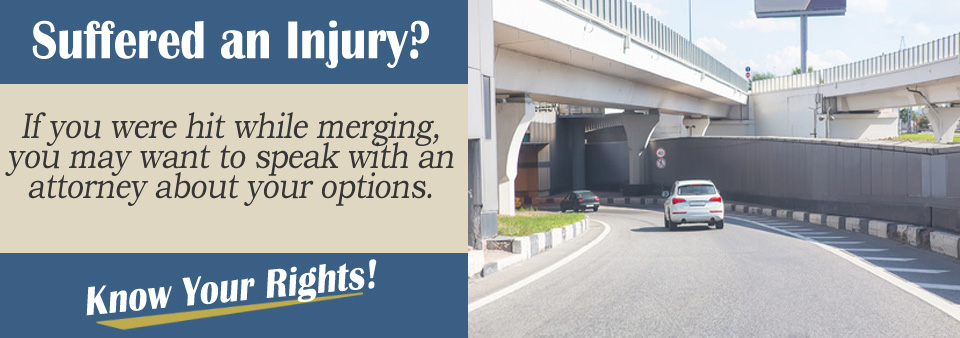Blending in is something we think about doing at work or when we spend a night out on the town. It is also something we do every day on our way to and from work, as well as when the entire family drives to a relative’s house.
Blending in on the road is called merging, and it can lead to car accident medical bills that drain your bank account.
If you received injuries caused by a merging car accident, you might have to pay the bills initially. However, whether your insurance company comes through or the other driver takes care of your personal injury medical expenses, you might come out of a merging car accident with nothing more than a dent in your pride.
The Ultimate Question: Who Pays for Medical Treatment
The price tag of merging car accident bills depends on the speed at which one or both cars traveled at the time of the collision. For example, a merging accident involving a vehicle entering congested traffic probably produces lower medical bills than a merging accident that involves two or more vehicles traveling at high speeds.
Regardless of the type of merging car accident, medical bills can pile up quickly that eventually total more than $10,000.
Common merging accident injuries include whiplash, head trauma, and one or more broken bones. The answer to the question “Who pays for medical treatment” depends on the type of auto insurance you have, as well as where you live.
The Role of No Fault Insurance
Some states, such as Utah, Michigan, and New Jersey have a law on the books called no fault auto insurance. Many car insurance policyholders either do not know what that means or they were never aware that their car insurance includes a no fault provision.
If you received injuries as a result of a merging car accident, payment for your medical bills depends on whether you live in a no fault state.
This type of auto insurance means that your car insurance company pays some or all of your medical bills regardless of which driver caused the crash. No fault policies typically pay out faster than the policies written for policyholders living in ‘fault” states.
These types of car insurance policies have limits, which means any medical costs that exceed the policy limit fall on the shoulders of the policyholder.
States That Do Not Have No Fault Car Insurance
For the majority of states that do not have no fault auto insurance provisions, claimants usually pick up the tab for paying medical bills. However, it is possible for claimants to live in states that allow for Med Pay auto insurance coverage.
Med Pay pays for a wide variety of medical bills, including hospital stays, ambulance services, and health insurance deductibles. With some health insurance deductibles running into the thousands of dollars, having access to Med Pay cash can eliminate any out of pocket expenses for paying off medical expenses.
Schedule a Free Case Evaluation
How you proceed after a merging car accident goes a long way towards determining your financial obligations. By scheduling a free case evaluation with an experienced personal injury attorney, you can discover how much financial responsibility you have for paying off the medical expenses associated with a merging car accident.
Your lawyer might decide to file a personal injury claim against the other driver if there is conclusive evidence the other driver committed one or more acts of negligence.
